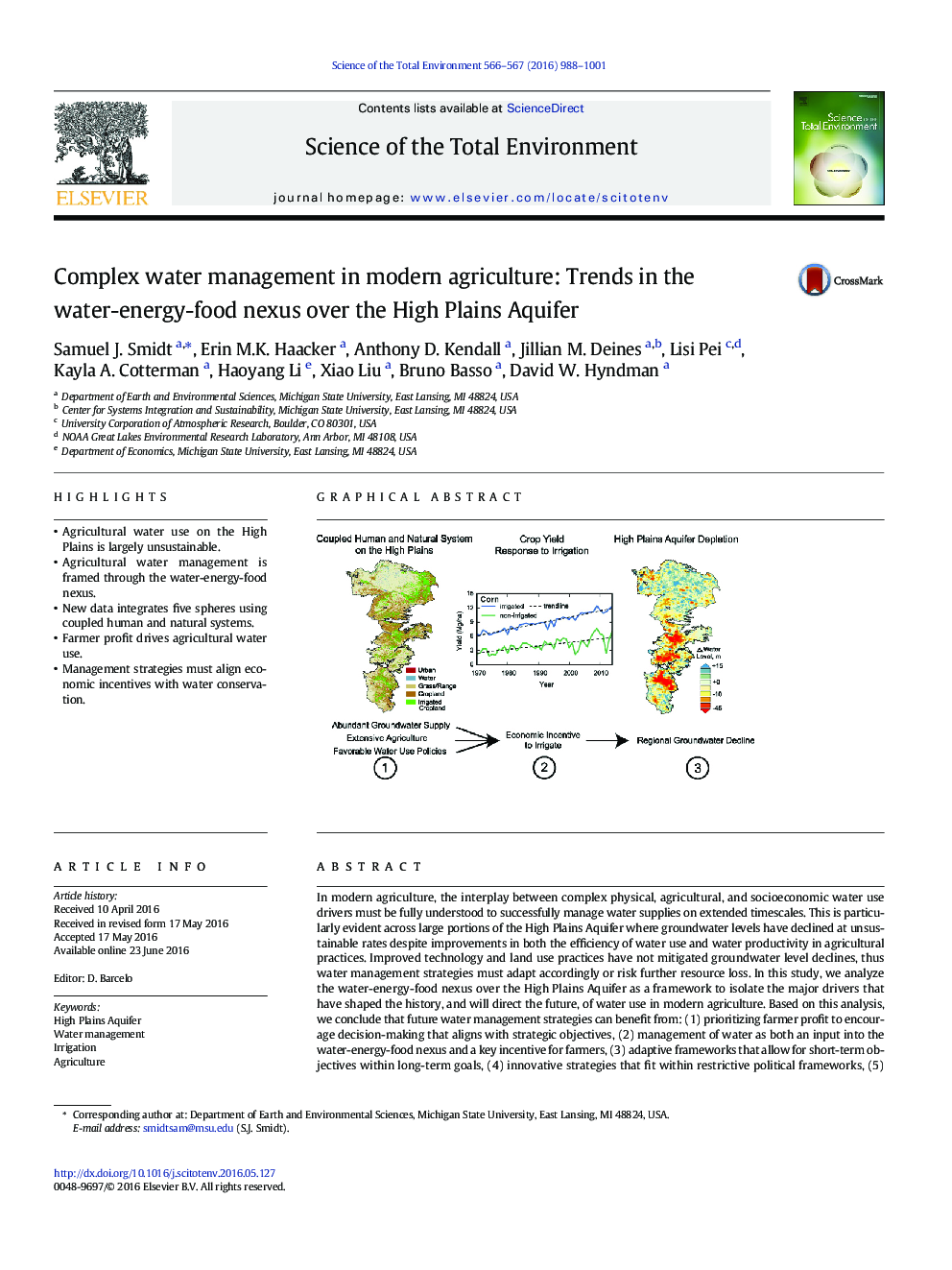| کد مقاله | کد نشریه | سال انتشار | مقاله انگلیسی | نسخه تمام متن |
|---|---|---|---|---|
| 6320999 | 1619723 | 2016 | 14 صفحه PDF | دانلود رایگان |
- Agricultural water use on the High Plains is largely unsustainable.
- Agricultural water management is framed through the water-energy-food nexus.
- New data integrates five spheres using coupled human and natural systems.
- Farmer profit drives agricultural water use.
- Management strategies must align economic incentives with water conservation.
In modern agriculture, the interplay between complex physical, agricultural, and socioeconomic water use drivers must be fully understood to successfully manage water supplies on extended timescales. This is particularly evident across large portions of the High Plains Aquifer where groundwater levels have declined at unsustainable rates despite improvements in both the efficiency of water use and water productivity in agricultural practices. Improved technology and land use practices have not mitigated groundwater level declines, thus water management strategies must adapt accordingly or risk further resource loss. In this study, we analyze the water-energy-food nexus over the High Plains Aquifer as a framework to isolate the major drivers that have shaped the history, and will direct the future, of water use in modern agriculture. Based on this analysis, we conclude that future water management strategies can benefit from: (1) prioritizing farmer profit to encourage decision-making that aligns with strategic objectives, (2) management of water as both an input into the water-energy-food nexus and a key incentive for farmers, (3) adaptive frameworks that allow for short-term objectives within long-term goals, (4) innovative strategies that fit within restrictive political frameworks, (5) reduced production risks to aid farmer decision-making, and (6) increasing the political desire to conserve valuable water resources. This research sets the foundation to address water management as a function of complex decision-making trends linked to the water-energy-food nexus. Water management strategy recommendations are made based on the objective of balancing farmer profit and conserving water resources to ensure future agricultural production.
357
Journal: Science of The Total Environment - Volumes 566â567, 1 October 2016, Pages 988-1001
